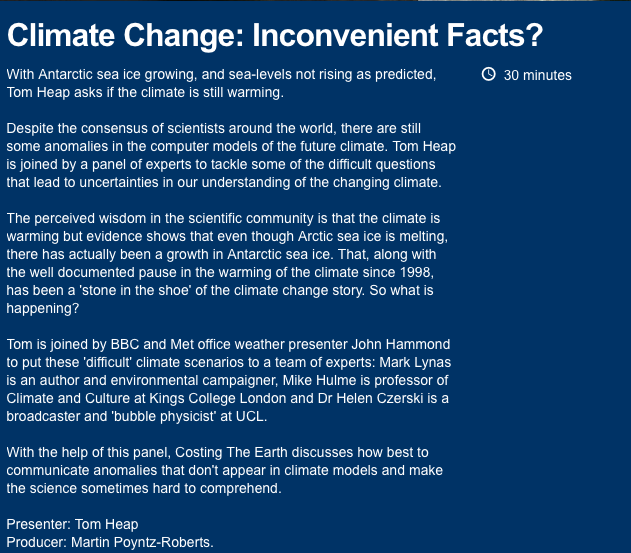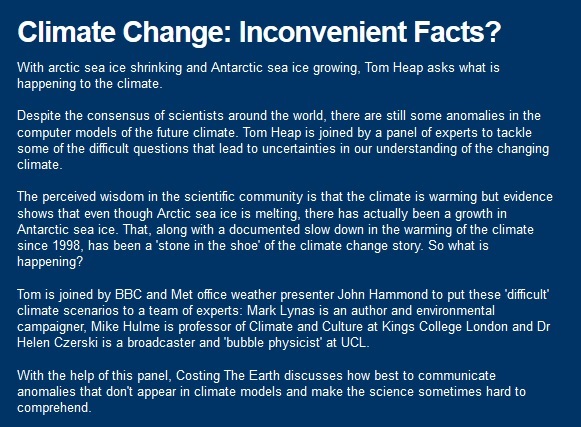Question Time this week comes from the Labour stronghold of Bolton in Greater Manchester. Dimbo will be joined by ‘Conservative’ Education Secretary Nicky Morgan MP, Scottish Labour Leader Jim Murphy MP, Plaid Cymru Leader Leanne Wood, Ukip MEP Steven Woolfe MEP and Janet Street-Porter. What feast for the senses that should be! Join us for the fun at 10:45 or before if you’re really keen.
Here’s the log. We had 10 people in tonight, more would be welcome!
| Dave666 |
The representative mixed race family tv licence add…nice |
| Julio |
lovely |
| Dave666 |
Ooh racist Diane Abott on again. |
| Teddy Bear |
Good Evening All :o) |
| Julio |
evening Teddy |
| Dave666 |
Evening all |
| Julio |
evening Dave |
| Dave666 |
Evening |
| Julio |
and Mustapha |
| Julio |
no merit |
| Dave666 |
No merit didn't watch |
| Mustapha |
Shtree' Por'er |
| ChatBot |
Woohoo ! Angrymanupnorth has joined the chat! |
| Julio |
I think Labour will get the bigger vote |
| ChatBot |
Woohoo ! Doyle has joined the chat! |
| Julio |
unfortunately |
| Julio |
hello Angry Doyle |
| Dave666 |
Damn right they should have given us English a vote |
| Angrymanupnorth |
Hi guys n gals |
| ChatBot |
Woohoo ! Doyle has joined the chat! |
| Teddy Bear |
Hi |
| Dave666 |
Hi |
| Julio |
lucky for scotland that they didn't choose independence |
| Angrymanupnorth |
Miliband had a car crash on C4. Two labour stooges at the beginning of QT. |
| ChatBot |
Woohoo ! Julio has joined the chat! |
| ChatBot |
Woohoo ! Dabble has joined the chat! |
| Dabble |
Good evening |
| Angrymanupnorth |
Spout cliches. Cant argue with that. |
| ChatBot |
Woohoo ! Julio has joined the chat! |
| ChatBot |
Woohoo ! jimbo has joined the chat! |
| Mustapha |
Fair point from JSP |
| Angrymanupnorth |
Morgan. Two bagger? |
| ChatBot |
Woohoo ! Dabble has joined the chat! |
| ChatBot |
Woohoo ! The Lord has joined the chat! |
| ChatBot |
Woohoo ! Doyle has joined the chat! |
| Julio |
we know cameron is a spiv and that miliband was in government when the banking crisis hit and government spending rocketed |
| ChatBot |
Woohoo ! Dave666 has joined the chat! |
| Dabble |
a couple of issues logging on – but Good Evening all |
| Julio |
hello Dabble |
| Dabble |
hi |
| Dave666 |
It went pear shape! Millibland got bullied but he was the best leader. Labour plant |
| Julio |
Yep it's not going as smooth as it did last week maybe I should stick to using questionti.me |
| Dabble |
What's Occuring? |
| Julio |
http://gistar.net/GabbaService/UserImages/juliom_51f6afa4-12eb-4101-a7fb-d0c9e2a096e6_alien.jpg |
| Teddy Bear |
lol |
| Julio |
but pictures work |
| Dave666 |
His role in food banks nothing to do with the assembly then |
| Mustapha |
Something out of "Alien" |
| Julio |
yep it's Alien Jr |
| Dabble |
William Hague has bad bout of constipation? |
| Angrymanupnorth |
Alien? Murphy or Morgan? Or JSP? |
| Julio |
lol |
| Julio |
I would |
| Dave666 |
The bankers should pay. What a novel solution to a crisis caused by American banks lending to people who couldn't pay it back |
| Mustapha |
The bankers the bonuses the bankers the bonuses the bankers … |
| ChatBot |
Woohoo ! Angrymanupnorth has joined the chat! |
| jimbo |
Finance and migration an odd mix |
| Angrymanupnorth |
Woolfe time! |
| Julio |
never seen this bloke before |
| Dabble |
Jeremy Guscott is on everything |
| Dave666 |
No he must have avoided rent a scum in his local |
| jimbo |
the Wolf of Benefits street |
| Julio |
lol |
| Dave666 |
You can't hear him for the audience applause |
| Mustapha |
I used to be a ware wolf but I'm nearly over it nowoooooooooo |
| jimbo |
Fair is the most abused word in the political lexicon |
| Julio |
and 'debate' |
| Angrymanupnorth |
Mustapha. Get yer coat. |
| Angrymanupnorth |
And passionate. |
| Dave666 |
What happened in the last 5 years of sorting out labours mess |
| Angrymanupnorth |
It got messier dave. |
| jimbo |
Actually this government despite a terrible inheritance have been quite radical – employment stats frankly amazing |
| Dabble |
Give away free food and is it any wonder that some people who don't need it will take it? |
| ChatBot |
Woohoo ! Arthur Penney has joined the chat! |
| Mustapha |
Food banks – exactly. |
| Dave666 |
the scum pedo (in jail now) in our street used the food banks whilst drinking in the street having his car valated etc the other person we knew using them was a nurse because they don't get paid much. |
| Angrymanupnorth |
A country as rich as ours? FFS. Deluded. |
| Julio |
Jim Murphy wants to pick English pockets to bribe scottish voters he's got a nerve pretending to care about voters. |
| Julio |
Greater Manchester twice in two weeks? |
| Angrymanupnorth |
To jimbo. And the national Debt? Unfunded liabilities? Continuing deficit? |
| The Lord |
What happened to double-dip? |
| jimbo |
no love its called the proceeds of growth |
| Dave666 |
No labour will just make up some new taxes just like last time. |
| Dave666 |
I worked in DHSS fraud isn't that small an issue |
| Angrymanupnorth |
If it moves. Tax it. Unless its stationary. Then tax that too. |
| Dave666 |
Another scum in our locality was done not that long ago for a 27K benefit fraud |
| Mustapha |
27k ! |
| Julio |
do they have to pay it back? |
| Angrymanupnorth |
Another Labour Stooge. Primed with a point. |
| ChatBot |
Woohoo ! FedUp has joined the chat! |
| Mustapha |
Amy Rutland all over again? |
| Julio |
Good Morning Campers! |
| Julio |
Hello Fedup |
| Angrymanupnorth |
Austerity. What austerity? |
| Dave666 |
Yes. I worked on overpayments for a time as well. However if they are still on benefits it can be reduced to a very small level the standard reduction was @ £7pw when I left which was 15 years ago |
| FedUp |
Hello |
| Angrymanupnorth |
Investment equals spending. |
| Dabble |
the debt and deficit has not been cut – so the austerity experiment has failed. So let's spend more on public services. Was tghis reallly her argument? |
| Angrymanupnorth |
Yep. |
| Dave666 |
Street porter is going for it. Yea nothing to do with the assembly. |
| Julio |
yep |
| FedUp |
Just been reading Guido – apparently 54% of voters thought Cameron was better – but so far on QT looks like 95%+ love Ed |
| Dabble |
hello Fed Up |
| jimbo |
the great unwashed will believe anything |
| FedUp |
Trust the BBC eh? |
| Dave666 |
They even believe the BBc |
| Mustapha |
Well said JSP! |
| Julio |
Miliband was talking about getting rid of the deficit but not paying back any of the accumulated debt |
| Dave666 |
hear hear |
| jimbo |
what was it Goebbels said if you tell a lie make it a big one |
| Julio |
why shouldn't the barnett formula be looked at? |
| The Lord |
I invested £200 on Paddy's Day. |
| FedUp |
Is it a prerequisite of a career in politics to be economically ignorant |
| Julio |
did you win? |
| Dave666 |
Damn right they want independence. Well all the welsh people I know don't including Mrs dave but never mind |
| Angrymanupnorth |
Steven Woolfe is impressive. No? |
| Julio |
funny how socialists love some traditions but not others |
| Dave666 |
My admiration for Janet Street Porter has increased |
| Mustapha |
Agree Woolfe looks solid |
| Julio |
yep he is Angry |
| Angrymanupnorth |
Keep Calm. Play ball not man. |
| Julio |
sweden finland |
| jimbo |
Conservatives have said that they will review Barnet Formula haven't they |
| Angrymanupnorth |
Labour stooges. Its so obvious. |
| Dabble |
free care for the elderly in Scotland and shorter waiting times – is this why NHS in Scotland costs more? |
| Julio |
They might look at it Jimbo who knows if they'll do anything |
| Dabble |
is she Marty Feldman's daughter? |
| Julio |
lol |
| Angrymanupnorth |
Promoted beyond ability. Morgan. |
| Dave666 |
I love what she's done with her hair |
| Angrymanupnorth |
Better if it was long over the face too. |
| Julio |
lol |
| The Lord |
cut this cut that. Foreign Aid |
| ChatBot |
Woohoo ! Julio has joined the chat! |
| Angrymanupnorth |
I can't look in morgans eyes. They are hypnotising. |
| Dave666 |
Nor can labour |
| jimbo |
if we have a coalition it will allow all parties to ditch whole chunks of their manifestos – we the electorate get shafted in a smoke filled room |
| Angrymanupnorth |
We get shafted anyway. |
| jimbo |
try The Harrogate Agenda |
| Mustapha |
Clap sheep! |
| Dave666 |
I love what shes done with her hair |
| Angrymanupnorth |
More tax. |
| Angrymanupnorth |
Labour Stooges. |
| Julio |
what crap |
| Dabble |
I'm in North Wales – in a constituency with an 18000 labour majority. If they stood a sheep with a red rosette it would get shagged and voted in. So what is democracy for me? Whichever party I vote for |
| Dave666 |
They only work for the bankers..class war |
| The Lord |
bankers-tick |
| Julio |
yep FPTP is a pile of crap |
| Dave666 |
I used to live near Wrexham. |
| Angrymanupnorth |
This is BBC Bias. Labour stooges and Dimbleby has spotters on them. Disgraceful. |
| Dabble |
indeed Julio |
| Dabble |
you got the constituency right Dave 🙂 |
| Dave666 |
Yea lets vote on proportional representation |
| Angrymanupnorth |
I did. Most didn't. |
| Dave666 |
The old Wrexham Mp refused to talk to me I think I pissed him off a little bit. |
| Dabble |
You have my respect Dave |
| Angrymanupnorth |
Welsh divie. |
| ChatBot |
Woohoo ! Dave666 has joined the chat! |
| Julio |
.. and hand the bill to England |
| Mustapha |
What of the Leo Abse revelations? |
| Dave666 |
closed shops return |
| ChatBot |
Woohoo ! Julio has joined the chat! |
| Mustapha |
Wolfe is good: calm clear. |
| ChatBot |
Woohoo ! Dave666 has joined the chat! |
| Julio |
that is for those other countries to decide |
| Angrymanupnorth |
Woolfe is talking about the issues. Good man. |
| Dave666 |
No applause for UKIP |
| Dabble |
I was out with a Polish friend of mine in Wrexham who was complaining about the large influx of Kurds into Wrexham – so even recent immigrants are complaining |
| Teddy Bear |
I was just about to write the same thing about applause Dave |
| Dabble |
the people new immigrants affect the most are often recent immigrants |
| Dave666 |
I cant see is there a bloke holding up a board with clap on it |
| Angrymanupnorth |
It's the socialist elite that love the immigration. They can't see the effects from their castles. |
| Dave666 |
Cheap shot Dimblebery |
| Julio |
they see the effects of the immigrants' votes |
| Dabble |
the people most affected by new immigrants is often recent immigrants |
| Mustapha |
Workers of the WORLD unite! (not "of the UK/Britain/Manchester/England) |
| ChatBot |
Woohoo ! Dabble has joined the chat! |
| Julio |
those are skills you learn on the job |
| jimbo |
one of the tories problem is that they should be the party for hard working immigrants – trouble is the rhetoric they use make immigrants feel that they are not wanted |
| Dabble |
sorry about double posting – connection issues |
| Dabble |
good point Jimbo |
| Dave666 |
I've worked with migrants my personal view from my personal experience has left me less than impressed. That is my experience |
| Julio |
employers pick migrants to avoid the cost of training |
| Dave666 |
I love what hes done with his hair |
| Julio |
lol |
| Angrymanupnorth |
Labour Stooges. Unbelievable. One after another. |
| jimbo |
are you a barber Dave 666? |
| Dave666 |
Our benefit system is so inviting |
| Angrymanupnorth |
Murphy farts Applause. |
| Mustapha |
Pathetic level of debate on nett immigration of 300000 in one year!! |
| jimbo |
Cut the Crap Phillip!!!!! |
| Dave666 |
No lol I haven't had my hair cut isince 2001 it's halfway down my back. I used to be a DJ in a rock club amongst the many other things I've done. |
| Dabble |
Indeed – and the 30000 is NET |
| Julio |
good point that bloke |
| Mustapha |
> 500000 gross every year 2003-2010 |
| Dave666 |
Someone sensible in the audience |
| Dabble |
the politicians have quietly moved to NET immigration figures – gross is quite horrifying |
| Dave666 |
Oh no janet you've gone back down in my esteem. |
| Angrymanupnorth |
Vetted audience. Positive discrimination. facepalm. |
| Mustapha |
Yes Dabble – who are the ones going out? |
| Julio |
women have more power in the home but less power in parliament so everything is balance |
| Dave666 |
CLARKSON!!!! |
| Angrymanupnorth |
FFS Jezza. Kettle time. |
| jimbo |
I remember one of my corporals decked an officer _ no punishment at all -needless to say said officer is now an MP!! |
| Dave666 |
Look at the size of the Welsh womans ears |
| Mustapha |
Yentob! |
| Julio |
crikey they are huge |
| Dave666 |
They are enourmous word BINGO so got CLARKSON!!! and savile in the same sentence |
| Dave666 |
BINGO!!! |
| Julio |
lol |
| Angrymanupnorth |
Kids just dont learn how to stand up to bullies at school now. So it infects the adult world. |
| Dabble |
Prescott? |
| Dabble |
Dimble beat me to it |
| Angrymanupnorth |
Murphy hasn't heard of the law then? |
| Dave666 |
Hang them high |
| Mustapha |
Clint Eastwood film. |
| jimbo |
in your prime Dimmers!! |
| Angrymanupnorth |
woolfe did well. Angryman out. Been emotional Dave. |
| Dabble |
Salford? Presumably the'll be bussing them in from Wilmslow and Alderley Edge |
| Julio |
ok see you later Angry thanks for playing |
| Teddy Bear |
Have a very good evening all |
| Dabble |
Good night all |
| Julio |
nn to those leaving |
| Dave666 |
Its always emotion. Time for a large schooner of sherry i'm not watching that racist Abbott. Night everyone |
| Julio |
ok nn dave |
| jimbo |
Nighty night |
| Mustapha |
Good night all. |
| Julio |
anyone still here? |
| Julio |
nn mustapha |
| ChatBot |
Woohoo ! Julio has joined the chat! |
| ChatBot |
Woohoo ! Julio has joined the chat! |



 Helen Czerski
Helen Czerski  Michael E. Mann
Michael E. Mann 
